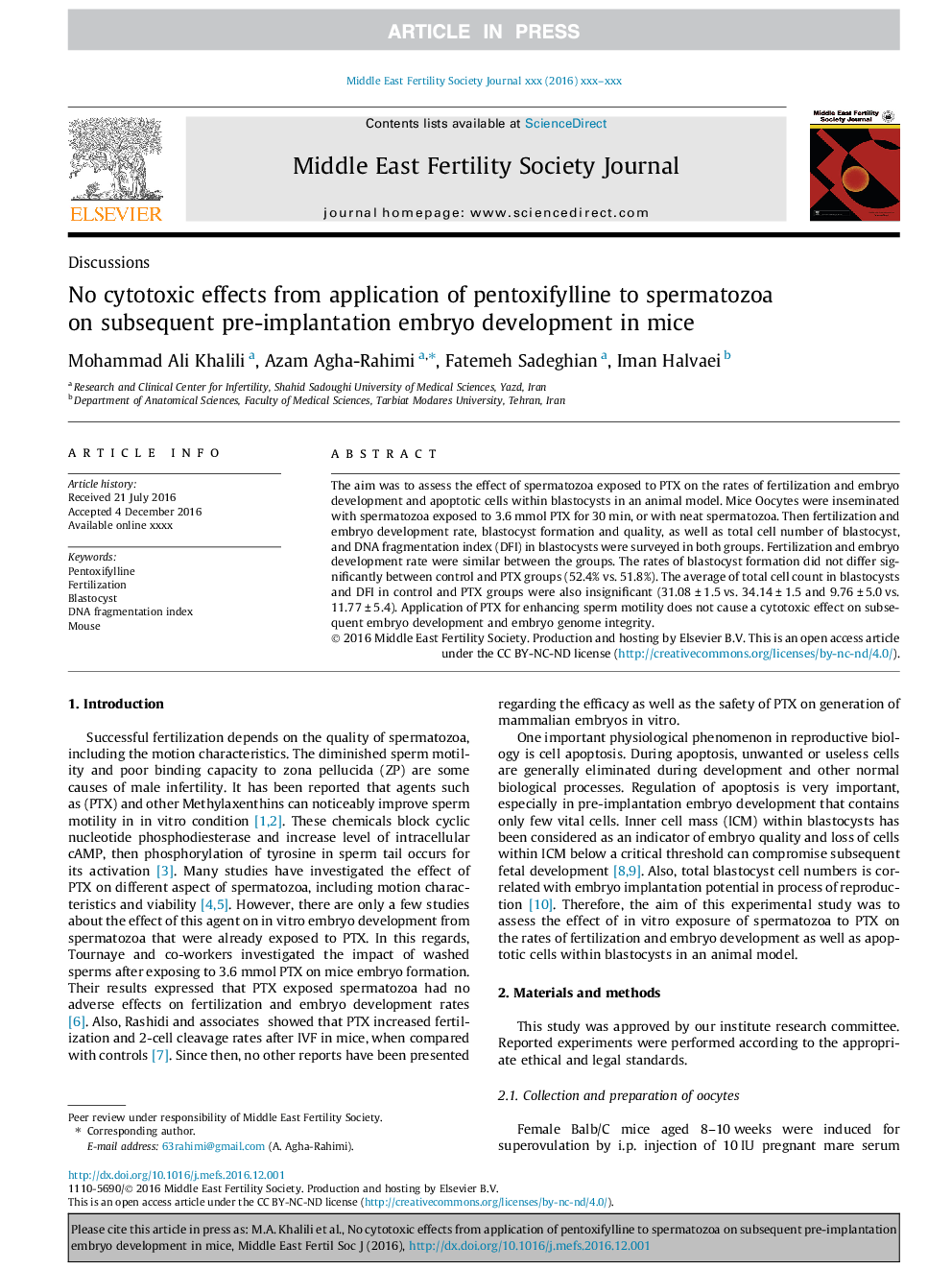| Article ID | Journal | Published Year | Pages | File Type |
|---|---|---|---|---|
| 8783298 | Middle East Fertility Society Journal | 2017 | 4 Pages |
Abstract
The aim was to assess the effect of spermatozoa exposed to PTX on the rates of fertilization and embryo development and apoptotic cells within blastocysts in an animal model. Mice Oocytes were inseminated with spermatozoa exposed to 3.6 mmol PTX for 30 min, or with neat spermatozoa. Then fertilization and embryo development rate, blastocyst formation and quality, as well as total cell number of blastocyst, and DNA fragmentation index (DFI) in blastocysts were surveyed in both groups. Fertilization and embryo development rate were similar between the groups. The rates of blastocyst formation did not differ significantly between control and PTX groups (52.4% vs. 51.8%). The average of total cell count in blastocysts and DFI in control and PTX groups were also insignificant (31.08 ± 1.5 vs. 34.14 ± 1.5 and 9.76 ± 5.0 vs. 11.77 ± 5.4). Application of PTX for enhancing sperm motility does not cause a cytotoxic effect on subsequent embryo development and embryo genome integrity.
Related Topics
Health Sciences
Medicine and Dentistry
Obstetrics, Gynecology and Women's Health
Authors
Mohammad Ali Khalili, Azam Agha-Rahimi, Fatemeh Sadeghian, Iman Halvaei,
